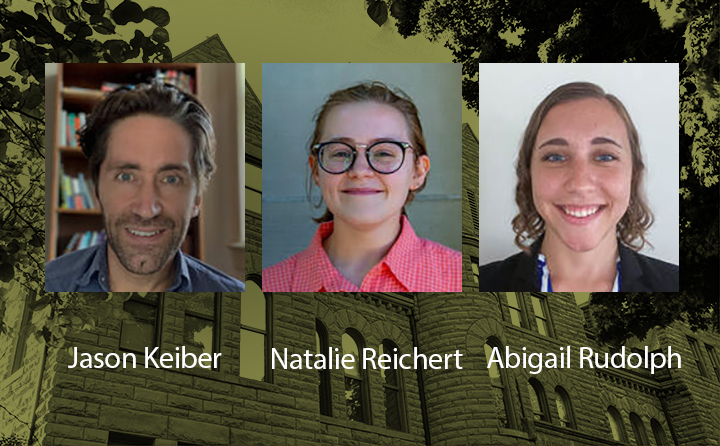BW Voices: Ohioans must act to fight the 'human security' threat of climate change
 While
parts
of
the
U.S.
have
baked
in
record-setting
heat
this
summer,
along
with
wildfires
and
other
extreme
weather,
a
Baldwin
Wallace
University
assistant
professor
of
national
security
worked
with
students
to
think
through
changes
Ohioans
must
make
to
fight
climate
change.
While
parts
of
the
U.S.
have
baked
in
record-setting
heat
this
summer,
along
with
wildfires
and
other
extreme
weather,
a
Baldwin
Wallace
University
assistant
professor
of
national
security
worked
with
students
to
think
through
changes
Ohioans
must
make
to
fight
climate
change.
Dr. Jason Keiber, Natalie Reichert, an international studies major, and Abigail Rudolph, a national security major, dug into a technical report from Princeton University detailing how states can achieve "net-zero" carbon emissions by 2050. Carbon dioxide and other greenhouse gasses in the atmosphere contribute to global warming.
Keiber's team analyzed and translated the Ohio data to produce an easy-to-understand document for policymakers, as well as a guest column that was published by the Akron Beacon-Journal/ohio.com. In the piece, the co-authors offer "urgent changes Ohioans must make to do their part to address greenhouse gasses."
Climate as national security threat
 As
a
national
security
expert,
Keiber
says
climate
change
is
not
just
an
issue
for
environmentalists.
As
a
national
security
expert,
Keiber
says
climate
change
is
not
just
an
issue
for
environmentalists.
"Climate change exacerbates an already complicated and dangerous threat landscape for U.S. national security," he explains. "The instabilities that produce civil wars, masses of displaced people, territorial disputes and more are made worse by an ever-warming world."
"Domestically, 'human security' is threatened as people's lives and livelihoods are directly threatened by stronger storms, more intense heatwaves, larger forest fires and the like," Keiber adds. "Climate change will be the throughline of every human catastrophe moving forward."
Warning against delayed action
In their guest column, the co-authors end with a warning. "The brute physics of climate change will continue to unfold, and the longer we wait to make the necessary changes, the more costly these changes will become."
However, "with the right policies, community action and innovative spirit, we can make Ohio net-neutral by 2050."



